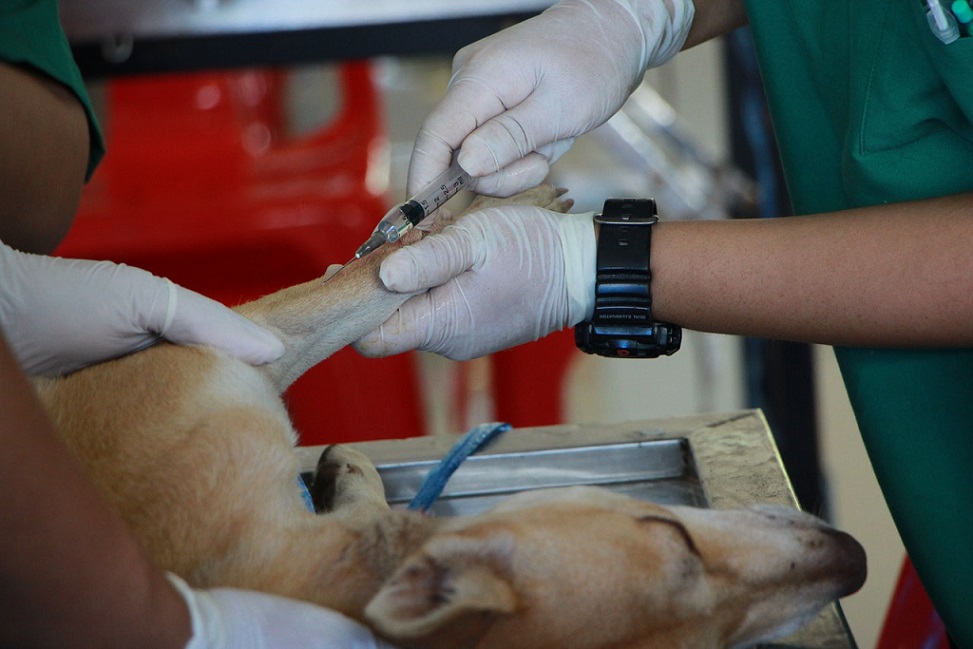Well, we are sure no one wants to see their pets in pain because you must have an idea about how painful is neutering or spaying for your pets. But this temporary pain has lots of medical benefits that cannot be ignored.
In this article, you’ll find everything about neutering and spaying your pets (especially dogs and cats). So, whether you are a new pet owner or have had a pet for a long time, this post will answer most of your questions.
So, let’s explore everything you need to know about neutering and spaying.
Read: Can dogs eat cat food?
Table of Contents
FAQs About Neutering and Spaying
Given below are common questions about neutering and spaying your dogs and cats and the answers to them.
What is Spaying/Neutering a dog/cat?
Neutering or spaying is a surgical procedure that stops the pets from being a parent. Neutering is performed in male animals while spaying is performed in female animals. Apart from the fact that this procedure is used to ensure there are no unwanted pregnancies, there are many health benefits to it.
When should you neuter/spay your pets?
Different species have different specifications and some most common are below.
Cats: Vets suggest that male and female cats should be neutered or spayed around the age of 6 months but remember, only the vet can suggest the right time for this surgery in a certain cat because there may be some specifications or complexities.
Dogs: The best time to neuter or spay your dogs is between the age of 6 to 9 months. Ask your vet for the perfect time for the surgery as the vet will suggest it after your pet’s checkup.
Horse: Male horses should be neutered(gelded) at the age of 1 year while female horses(mares) can be spayed at any time.
Related: How to take care of your pets?
What are the health advantages of spaying/neutering?
It is probably of the most-asked questions by pet parents. They are always curious about this simple surgery but there is good news for them; pet-desexing has many positive effects on your pet’s life and overall health and some of them are mentioned below.
1: No Testicular Cancer in Male Pets
Neutering male pets help them prevent testicular cancer which is a painful disease and gives a tough time to your four-legged companions.
2: No Breast Cancer in Female Pets
You must be wondering that male and female pets have problems and diseases similar to humans. Yes, there are some similarities. Anyways, spaying your female pets helps them prevent breast cancer and several uterine infections.
3: Less behavioral problem in male pets
Male cats and dogs become aggressive if not neutered at the right time. Also, the unneutered pets are more likely to mount other pets, and/or people especially the dogs are more aggressive in this regard.
4: Fewer fights with other male pets
Unneutered dogs are more likely to involve in fights with other pets especially male pets. After they are neutered, they’ll not be interested in regular fights with other pets.
5: Beneficial for senior dogs
Neutering helps reduce the size of an enlarged prostate in senior dogs. In fact, neutering is the only method to treat an enlarged prostate.
6: No unwanted litters
No one can resist a cute and adorable puppy. But having a litter of multiple unwanted puppies and bearing their maintenance and health cost is almost impossible for an average family.
Read about Dog Abortion
How to take care of your pets after spay/neuter surgery?
Use an Elizabethan Collar:
The pets are more likely to lick the incision site that may develop infections so it is recommended to use an Elizabethan collar or cone of shame to prevent them from licking it.
No social contact:
Keep your recovering pet away from other pets and provide them a calm and quiet place to recover.
No outdoor activities:
Although your pets would not be interested in going outdoors, still, you should keep an eye on them.
Avoid activities:
Make sure your pet won’t jump or run for around 2 weeks after the surgery. Your vet may ask for some more time to avoid such activities if needed.
Don’t bathe them:
Avoid bathing your cats or dogs for around 2 weeks after surgery or as per the vet’s recommendation.
Keep an eye on incision:
Keep checking the incision if it is healing or not. If they don’t heal in around 2 weeks, they are more likely to have an infected neuter incision. In such a case, you should talk to your vet.
Some Myths About Neutering & Spaying:
1: Your pet will get extra weight after being neutered or spayed
It is totally wrong. If you spay or neuter your pets but keep overfeeding them and skipping exercise, your pet will end up being an overweight lad.
2: Neutering will fix all the behavior problems
No, it will fix certain behavior problems, not all of them. Also, if your pet has some problems that he has learned with time, that have nothing to do with neutering. To prevent other behavioral problems, you should socialize and train your dogs from an early age.
Are there any disadvantages of spaying and neutering your pets?
Well, we have been looking at different websites and forums and many of them have pointed out some health risks that a neutered dog possesses. For example, your dog may have an increased risk of getting several types of cancers including a fatal bone cancer named osteosarcoma and prostate cancer.
Another study says that female dogs live longer if their ovaries are not removed. If you don’t already know a female dog’s ovary is removed in this surgery that is called spaying.
Female dogs may have a higher chance of bladder infections after being spayed.
Interestingly, we did not find these facts on some of the top pet-oriented sites and blogs so we could not confirm their authenticity of them. The best practice is to ask these questions from your vet, only they will be able to answer these questions with full authenticity.
Wrapping it up:
So, it was everything you need to know about neutering and spaying your pets. Remember, this article was just for information purposes. If you need more information about it, see your vet and they’ll guide you accordingly because different pets have different specifications.
Also, don’t rely on the facts you read on the internet or social media platforms, and the final decision should be made by you after taking suggestions from the vets.
You may like reading: Bully Kutta Dog | Cockapoo Dog | Shiba Inu Dog










